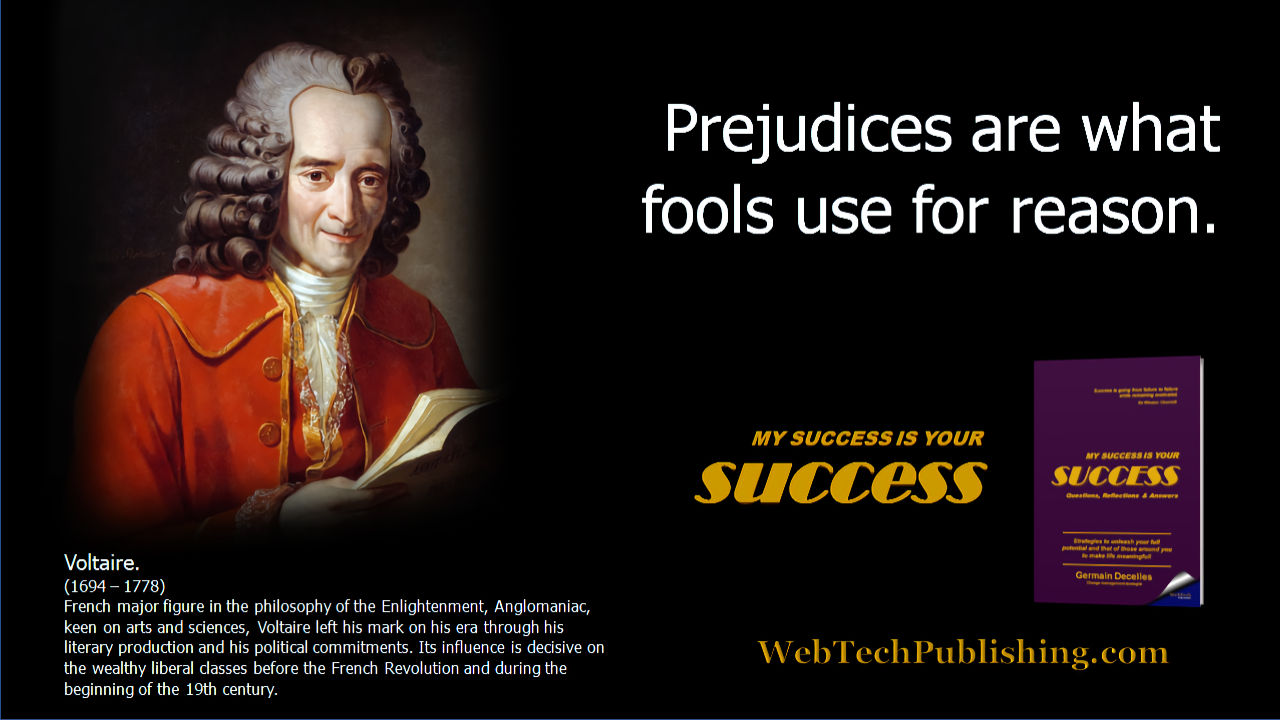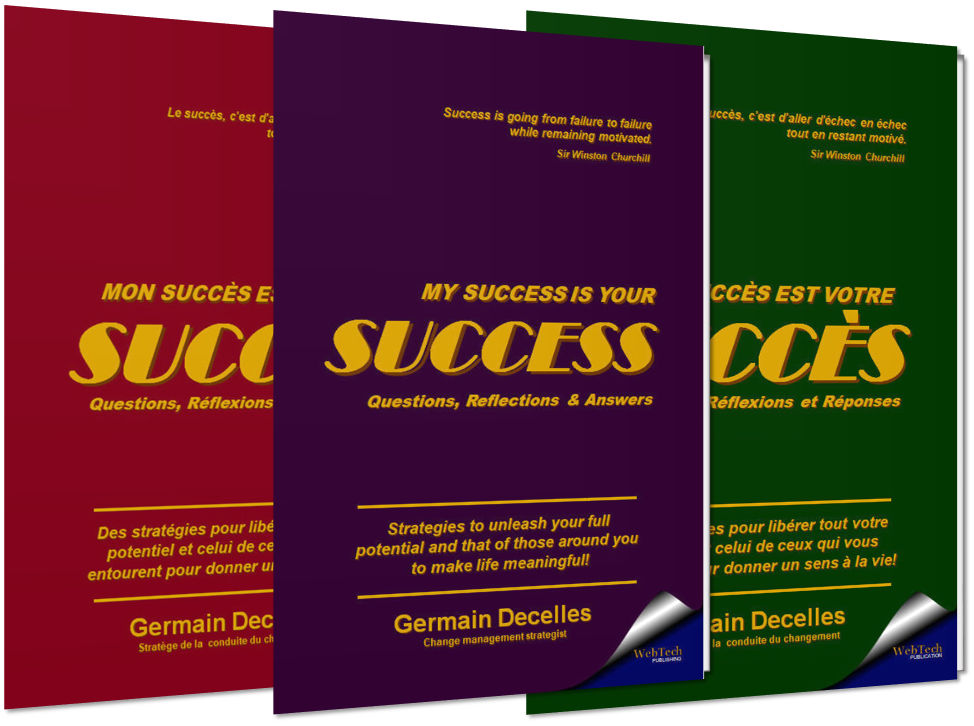|
Article published on LinkedIn.com:
April 19, 2024
35_cognitive_Enpdf

The quotations, short texts, and photographs in this
work remain the exclusive property of their respective
authors.
THE COGNITIVE BIAS
You need to make an unbiased and
rational decision about something important. You do your
research, make pros and cons lists, consult with experts and
trusted friends. When it comes time to decide, will your
decision really be objective!
Maybe not, because it's because you're
analyzing information using the complex cognitive machine that
is your brain that has processed your every life experience.
During your life, like any other
person, you have developed some subtle cognitive biases. These
aspects and perspectives influence what information you pay
attention to, what you remember about past decisions, and what
sources you decide to trust when researching your options.
A.
What is cognitive bias?
A cognitive bias is a flaw in your reasoning that leads you to
misinterpret information from the world around you to arrive
at an inaccurate conclusion.
Because you're inundated with information from millions of
sources throughout the day, your brain develops filing systems
to decide what information deserves your attention and what
information is important enough to store in memory.
It also creates shortcuts intended to reduce the time it takes
to process information.
The problem is that shortcuts and ranking systems aren't
always perfectly objective, as their architecture is uniquely
tailored to your life experiences.
B.
What are the most
common types of cognitive biases?
Researchers have cataloged over 175 cognitive biases.
Here are some of the more familiar ones that can affect your
daily life:
1.
Actor-observer bias:
actor-observer bias
is a difference between how we explain the actions of others
and how we explain our own.
People tend to say that another person did something because
of the distinctive marks of their character or some other
internal factor. In contrast, people usually attribute their
own actions to external factors such as the circumstances they
were in at the time.
2.
Anchoring bias:
anchoring bias is the
tendency to rely heavily on the first information you learn
when evaluating something. In other words, what you learn at
the start of an investigation often has a greater impact on
your judgment than information you learn later.
3.
Attentional Bias:
attentional bias
probably evolved in humans as a survival mechanism. To
survive, humans must dodge or avoid threats. Among the
millions of pieces of information that bombard the senses
daily, they must identify those that could be important for
their health, happiness, and safety.
This highly adapted survival skill can become biased if you
start to focus your attention too much on one type of
information, while neglecting other types of information.
4.
Availability
heuristic:
a heuristic is a
mental shortcut that allows people to solve problems and make
judgments quickly and efficiently. This experiential and
observational thinking shortens decision-making time and
allows people to function without constantly stopping to think
about their next course of action.
However, there are both pros and cons of heuristics. While
heuristics are useful in many situations, they can also lead
to cognitive biases. For example, if you can immediately think
of several facts that support a judgment, you might be
inclined to think that judgment is correct.
Another common bias is the tendency to give more credit to
ideas that come easily to mind. When information is readily
available around you, you are more likely to remember it.
Easily accessible information in your memory seems more
reliable. For example, if a person sees several headlines
about shark attacks in a coastal area, that person may think
that the risk of shark attacks is higher than it is.
5.
Validation bias:
similarly, people tend to seek out and interpret information
in ways that confirm what they already believe. Validation
bias causes people to ignore or invalidate information that
conflicts with their beliefs.
This trend seems more prevalent than ever, as many people get
their news from social media, which follows and searches for
« likes, » which provides information based on your
apparent preferences.
6.
Overestimation bias:
a cognitive bias whereby people with limited knowledge or
skill in a given intellectual or social area grossly
overestimate their own knowledge or skill in that area
relative to objective criteria or the performance of their
peers or people in general.
7.
False, consensus
effect:
just as people
sometimes overestimate their own skills, they also
overestimate the degree to which others agree with their
judgments and approve of their behaviors.
People tend to think of their own beliefs and actions as
familiar, while the behaviors of others are more deviant or
unusual.
An interesting note: false beliefs based on consensus are
appearing in many cultures around the world.
8.
Functional fixity:
this is a type
of cognitive bias that involves a tendency to view objects or
people as only functioning in a particular way.
When you see a hammer, you probably think of it as a tool for
hammering nail heads. This function is what hammers were
designed for, so the brain effectively affixes the function to
the word or image of a hammer.
But functional fixity does not only apply, to tools. People
can develop a sort of functional fixity with other human
beings, especially in work environments.
For example, Hannah = IT and Alex = Marketing.
The problem with functional fixity is that it can strictly
limit creativity and problem solving. In many cases,
functional fixity can prevent people from seeing the full
range of uses for an object and the people around them. It can
also impair our ability to find new solutions to problems.
9.
Aureole effect:
refers to the tendency to allow a specific trait or our
general impression of a person, company, or product to
positively influence our judgment of their other related
traits.
If you are
under the influence of a halo effect, your overall impression
of a person is unduly shaped and influenced by a single
characteristic, such as beauty. People regularly perceive
attractive people as more intelligent and conscientious than
their actual performance indicates.
10.
Misinformation Effect:
when you remember an event, your perception of it may be altered if you
later receive false information about the event.
In other words, if you learn something new about an event you
saw, it may change how you remember it, even if what you are
told is unrelated or wrong. This form of bias has enormous
implications for the validity of testimonies.
So, if the witnesses to the event practice repeating
statements about themselves, especially those that focus on
the strength of their judgment and memory, the effects of the
misinformation diminish, and they tend to remember events more
accurately.
Refer to Mark R. Levin's book (Unfreedom of the Press – ISBN
978-1-4767-7309-4) to understand the role of the press in
misinforming the public.
11.
Optimism bias:
an optimism bias can make you believe that you are less likely to
encounter difficulties than others and more likely to
experience success.
Whether people are making predictions about their future
wealth, relationships, or health, they typically overestimate
success and underestimate the likelihood of negative outcomes.
This is because we update our beliefs selectively, adding an
update when something is going well, but less often when
things are going wrong.
12.
Selfish Bias:
when something goes wrong in your life, you may tend to blame
an outside force for causing it.
But when something goes wrong in someone else's life, you may
wonder if that person was in some way blamed, if some internal
characteristic or flaw caused their problem.
In the same way, a selfish bias can lead you to credit your
own internal qualities or habits when something good comes
your way.
C.
How does cognitive bias affect you?
Cognitive biases can affect your decision-making abilities,
limit your problem-solving abilities, hamper your career
success, affect the reliability of your memories, challenge
your ability to react in crisis, increase anxiety and
depression and damage your relationships.
D.
Can cognitive biases be avoided?
Probably not.
The human mind seeks efficiency, which means that much of the
reasoning we used to conduct our day-to-day decision-making
relies on near-automatic processing.
But
researchers believe we can better recognize the situations in
which our biases are likely to operate and take steps to
uncover and correct them.
Studying
cognitive biases can help you recognize them in your own life
and counter them once you identify them.
Here's how to
mitigate the effects of bias:
1.
Learn:
studying cognitive biases can help you recognize them in your own life
and counter them once you identify them.
2.
Ask questions:
if you're in a situation where you know you might be susceptible to bias,
slow down your decision-making and consider expanding the
range of trusted sources you consult.
3.
Collaborate:
bring together a diverse group of contributors with different areas of
expertise and life experience to help you envision
possibilities you might otherwise overlook.
4.
Remain blind:
to reduce the risk of being influenced by gender, race, or other easily
stereotyped considerations, restrict yourself from accessing
information about these factors. It would also be nice to
suggest others do the same.
5.
Use checklists, algorithms, and other objective measures:
they can help
you focus on relevant factors and reduce the likelihood that
you will be influenced by irrelevant factors.
Cognitive biases are flaws in your way of thinking that can
cause you to draw inaccurate conclusions.
They can be harmful because they cause you to focus too much
on certain types of information while neglecting other types.
It's probably unrealistic to think that you can eliminate
cognitive bias, but you can improve your ability to spot
situations in which you'll be vulnerable to it.
By learning more about how they work, slowing down your
decision-making process, collaborating with others, and using
checklists and objective processes, you can reduce the chances
of cognitive bias leading you astray.
To learn more about how to inspire success, visit WebTech
Management and Publishing Incorporated (www.webtechmanagement.com)
and click on the blue image (Wise whiZ) at the bottom right of
the screen.
|

|
This book is the result of forty years
of experience acquired with local and international
organizations and companies and during consultancy,
change management, transition and marketing services.
This 404-page
personal development book was published by WebTech
Publishing and is available online in English, North
American French and European versions. For more
information and to view the flip book, visit
webtechPublishing.
|
About the Author
Decelles
Other publications:
ISO Pour Tous
– Le manuel
d’information ISO – Le guide de préparation ISO – La
gestion du changement en affaires – La gestion de
projet d’affaires – Le
changement POUR TOUS –
Change your future,
now! – Mon succès est votre succès.
Press Contact
Germain Decelles, o.s.j.
WebTech Management et Publication Incorpored
|
 |
—30 —
|